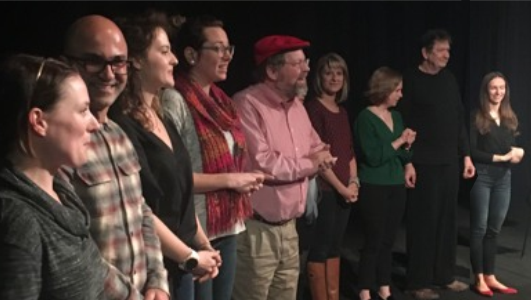Ever since my teenage years when I started writing in my journal, I dreamed about becoming a famous and world-renowned writer. I would write in my journal three or four times a week about my feelings, daily activities, my beliefs, and future plans. Some nights I would write 10 pages. I would re-read my own writing to an imaginary audience and make changes. After finishing school, I got a job in my uncle’s software company, but I continued to write.
One day, I was working on a paper to be published in a newspaper. I had chosen a title and I was deciding what I wanted to write. A day later, I was standing in front of a kiosk that sell newspapers. I looked at the front page of one of the well-known newspapers and read a title that was close to what I wanted to write about. I was so excited and wanted to buy it and keep it as a record of my writing experience. I looked at the rest of the story. It wasn’t like my story since I hadn’t even started writing mine.
Years later, I started writing anonymously about my experience of having a mother in prison. I didn’t use my own name or even another person’s name. Instead of my own name, I used the name, “Prisoner Number 0.” I was still thinking of myself as a famous writer. A few years later, I decided to write a memoir, putting all my blogs together under an anonymous name. It took some years to decide how to write a world-renowned book in Farsi! The four months that I waited for my publisher to send me the link to my book was the worst time in my writing life. My feeling of being renowned lasted only a couple of weeks. I was proud because my book was not only a book written (in Farsi) about children with incarcerated parents, but was written by a person (me) who went through this traumatic experience. But perhaps my story wasn’t shocking enough, like the story of my friend who, at 3-years-old, was in prison for couple months with her mother and two-month-old brother. And her father was in another prison. Years later, while she was waiting for her father’s return, the regime executed him. My friend lost her father as well as her uncles and aunts in a traumatic event. “She has a very strong story,” I told myself.
A month ago, I opened a Twitter account. A woman had tweeted that it was “International Reading Day.” That woman, my friend with the “strong story,” mentioned me in her 140-character tweet that said, “I read Hamed Farmand’s book three times and I finished it for the last time last night. I truly recommend it.” Yes! I had finally gotten what I wanted. I had written a book about an unseen and hidden population–families and children with incarcerated parents–and a person with one of the most shocking and strongest stories of her own had read my book more than once and encouraged others to read it too.

